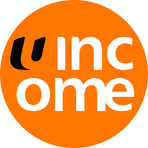The Income-Allianz Deal: Navigating the Waters of Change
August 7, 2024, 4:26 am
The recent proposed acquisition of Income Insurance by Allianz has stirred a tempest in Singapore's insurance landscape. The deal, valued at S$2.2 billion, raises questions about the future of Income's social mission and its commitment to affordable insurance for the underserved. As the National Trades Union Congress (NTUC) and the Monetary Authority of Singapore (MAS) assure the public of their intentions, the dialogue surrounding this transaction reveals deeper currents in the cooperative and insurance sectors.
The backdrop of this deal is a vibrant tapestry of Singapore's cooperative movement. Established in 1970, NTUC Income was born from a desire to provide affordable insurance to Singaporeans, particularly those in lower-income brackets. It was a beacon of hope, a promise that financial security was within reach for all. However, as the tides of the insurance market shift, questions arise: Can Income maintain its social mission amidst the pressures of corporate interests?
The government has stepped in, with Minister of State for Culture, Community and Youth, Alvin Tan, emphasizing the importance of NTUC's track record. He reassured the public that the cooperative movement remains a priority. The MAS echoed this sentiment, stating that it would hold both Income and Allianz accountable for their commitments to existing policyholders. This is crucial, as the deal's approval hinges on regulatory scrutiny.
The proposed acquisition has not been without its critics. Former CEO Tan Suee Chieh voiced concerns about potential mission drift. He argued that the deal could dilute Income's cooperative values, transforming it into just another corporate entity focused on profit. His open letter to the MAS sparked a rebuttal from NTUC Enterprise and Income, who labeled his claims as "unfair." They defended their governance and commitment to maintaining affordable insurance for their members.
The heart of the matter lies in the balance between sustainability and social responsibility. The insurance market is a competitive arena, and Income must adapt to survive. Tan pointed out that while premiums for some of Income's schemes are not the lowest, the government has bolstered the social safety net through various programs. This raises a critical question: Can a cooperative thrive in a market driven by profit?
As discussions unfolded in Parliament, the government reiterated its commitment to ensuring that Singaporeans have access to affordable insurance. The MAS highlighted that existing policyholders would not see changes to their contracts should the deal go through. This assurance is vital for maintaining public trust. However, the challenge remains: how to keep premiums affordable while navigating a competitive landscape.
The proposed deal has sparked a broader conversation about the future of cooperatives in Singapore. The NTUC has long been a champion for workers' rights, but as it evolves, it must grapple with the realities of the corporate world. The cooperative model, once a stronghold of social responsibility, now faces pressures that could reshape its identity.
Critics argue that the deal could lead to a shift in priorities. Allianz, a global financial powerhouse, may prioritize profit over the social mission that Income was built upon. The fear is that the essence of what made Income a cooperative could be lost in the pursuit of financial gain. However, NTUC and Income have assured the public that Allianz recognizes the importance of maintaining Income's commitments to its members.
The MAS has emphasized the need for a competitive insurance market. It believes that competition fosters innovation and better services for consumers. Yet, this raises concerns about whether a cooperative can thrive in such an environment. Can it remain true to its roots while adapting to the demands of a profit-driven market?
The dialogue surrounding the Income-Allianz deal is a reflection of larger societal values. It highlights the tension between economic growth and social responsibility. As Singapore continues to evolve, the challenge will be to find a balance that honors the cooperative spirit while embracing the realities of a globalized economy.
In conclusion, the Income-Allianz deal is more than a financial transaction; it is a crossroads for Singapore's cooperative movement. As stakeholders navigate these waters, the focus must remain on the people—those who rely on affordable insurance for their security. The assurances from the government and NTUC are a start, but the real test will be in the execution. Will Income stay true to its mission, or will it drift into the corporate tide? Only time will tell. The stakes are high, and the outcome will shape the future of insurance in Singapore.
The backdrop of this deal is a vibrant tapestry of Singapore's cooperative movement. Established in 1970, NTUC Income was born from a desire to provide affordable insurance to Singaporeans, particularly those in lower-income brackets. It was a beacon of hope, a promise that financial security was within reach for all. However, as the tides of the insurance market shift, questions arise: Can Income maintain its social mission amidst the pressures of corporate interests?
The government has stepped in, with Minister of State for Culture, Community and Youth, Alvin Tan, emphasizing the importance of NTUC's track record. He reassured the public that the cooperative movement remains a priority. The MAS echoed this sentiment, stating that it would hold both Income and Allianz accountable for their commitments to existing policyholders. This is crucial, as the deal's approval hinges on regulatory scrutiny.
The proposed acquisition has not been without its critics. Former CEO Tan Suee Chieh voiced concerns about potential mission drift. He argued that the deal could dilute Income's cooperative values, transforming it into just another corporate entity focused on profit. His open letter to the MAS sparked a rebuttal from NTUC Enterprise and Income, who labeled his claims as "unfair." They defended their governance and commitment to maintaining affordable insurance for their members.
The heart of the matter lies in the balance between sustainability and social responsibility. The insurance market is a competitive arena, and Income must adapt to survive. Tan pointed out that while premiums for some of Income's schemes are not the lowest, the government has bolstered the social safety net through various programs. This raises a critical question: Can a cooperative thrive in a market driven by profit?
As discussions unfolded in Parliament, the government reiterated its commitment to ensuring that Singaporeans have access to affordable insurance. The MAS highlighted that existing policyholders would not see changes to their contracts should the deal go through. This assurance is vital for maintaining public trust. However, the challenge remains: how to keep premiums affordable while navigating a competitive landscape.
The proposed deal has sparked a broader conversation about the future of cooperatives in Singapore. The NTUC has long been a champion for workers' rights, but as it evolves, it must grapple with the realities of the corporate world. The cooperative model, once a stronghold of social responsibility, now faces pressures that could reshape its identity.
Critics argue that the deal could lead to a shift in priorities. Allianz, a global financial powerhouse, may prioritize profit over the social mission that Income was built upon. The fear is that the essence of what made Income a cooperative could be lost in the pursuit of financial gain. However, NTUC and Income have assured the public that Allianz recognizes the importance of maintaining Income's commitments to its members.
The MAS has emphasized the need for a competitive insurance market. It believes that competition fosters innovation and better services for consumers. Yet, this raises concerns about whether a cooperative can thrive in such an environment. Can it remain true to its roots while adapting to the demands of a profit-driven market?
The dialogue surrounding the Income-Allianz deal is a reflection of larger societal values. It highlights the tension between economic growth and social responsibility. As Singapore continues to evolve, the challenge will be to find a balance that honors the cooperative spirit while embracing the realities of a globalized economy.
In conclusion, the Income-Allianz deal is more than a financial transaction; it is a crossroads for Singapore's cooperative movement. As stakeholders navigate these waters, the focus must remain on the people—those who rely on affordable insurance for their security. The assurances from the government and NTUC are a start, but the real test will be in the execution. Will Income stay true to its mission, or will it drift into the corporate tide? Only time will tell. The stakes are high, and the outcome will shape the future of insurance in Singapore.

